Introduction #
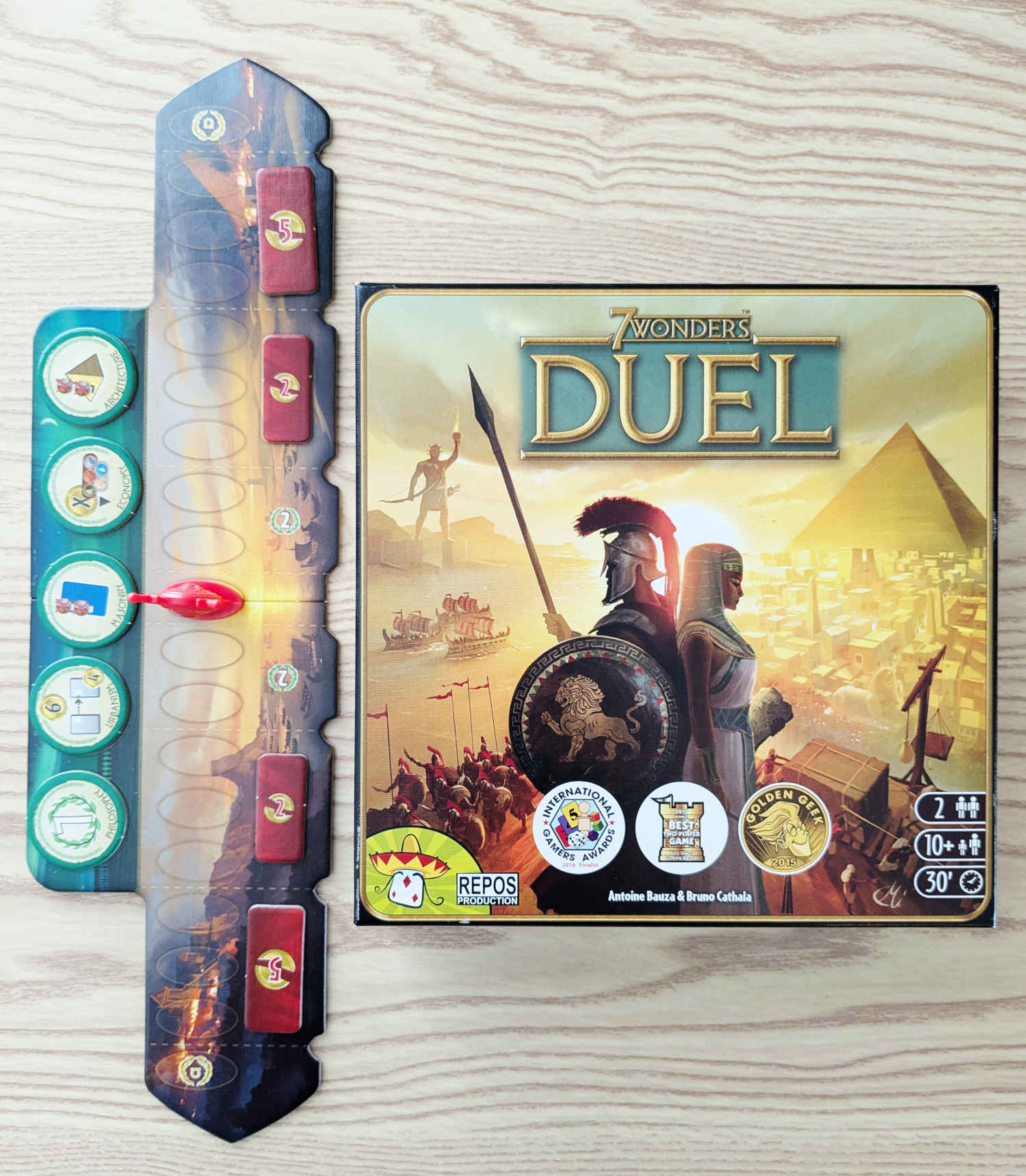
7 Wonders Duel has long been my favorite two-player game, and for good reason. Not only does it feature the elegantly simple drafting mechanic–a staple in the world of board gaming—but Antoine Bauza and Bruno Cathala have managed to transform it into something uniquely suited for two players. As a fan of Sid Meier’s Civilization, I appreciate the game’s civilization-building theme, which really scratches that strategic itch in a fast, digestible format. It’s like I get to grow an empire in under 30 minutes–what’s not to love?
And then, to my absolute joy, the publishers decided to bless us solo players by releasing an official solo variant. Now I can dive into 7 Wonders Duel on my own. There is no need for a second player to experience the thrill of building a civilization when I can go head-to-head with an AI opponent. So, how does the solo variant stack up? Let’s dive in!
Overview #
At its core, 7 Wonders Duel is a civilization-building game where you and your opponent compete to construct the greatest empire across three ages. Over the course of these ages, you draft cards from a pyramid-like structure, choosing one card at a time to either:
- Construct a building in your civilization for benefits.
- Use it to build a powerful Wonder.
- Sell it for coins to fund your future turns.
Victory comes through one of three paths: military dominance, scientific superiority, or by having the most points at the end of the game. The pressure is always on, with each decision feeling impactful and meaningful as you try to balance resource management, military might, and scientific advancement.
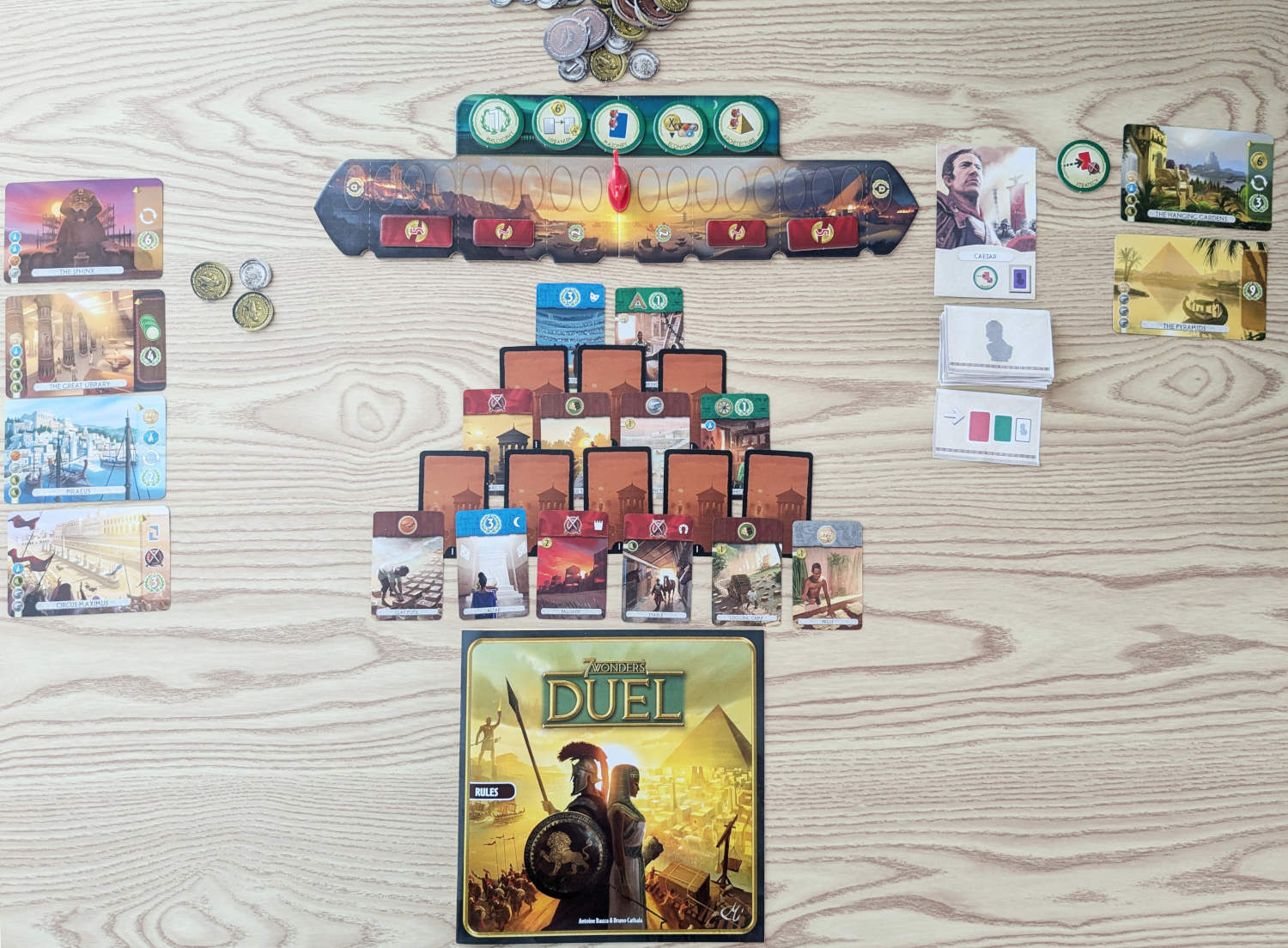
The solo variant stays true to the core gameplay. You face off against one of five historical Leaders as your AI opponent, and each one has slightly different strengths and playstyles. The AI is controlled by a deck of Decision cards that dictate what card the Leader will draft and how their civilization evolves. I found this system to be simple yet effective, with the AI making surprisingly competent plays, which keeps the tension high. Plus, you can get all of this for free. The solo mode rules and print-and-play Leader and Decision cards are available from Asmodee’s website or if you don’t like print-and-play, a member of the board game community created a companion app that can be used instead of the new cards.
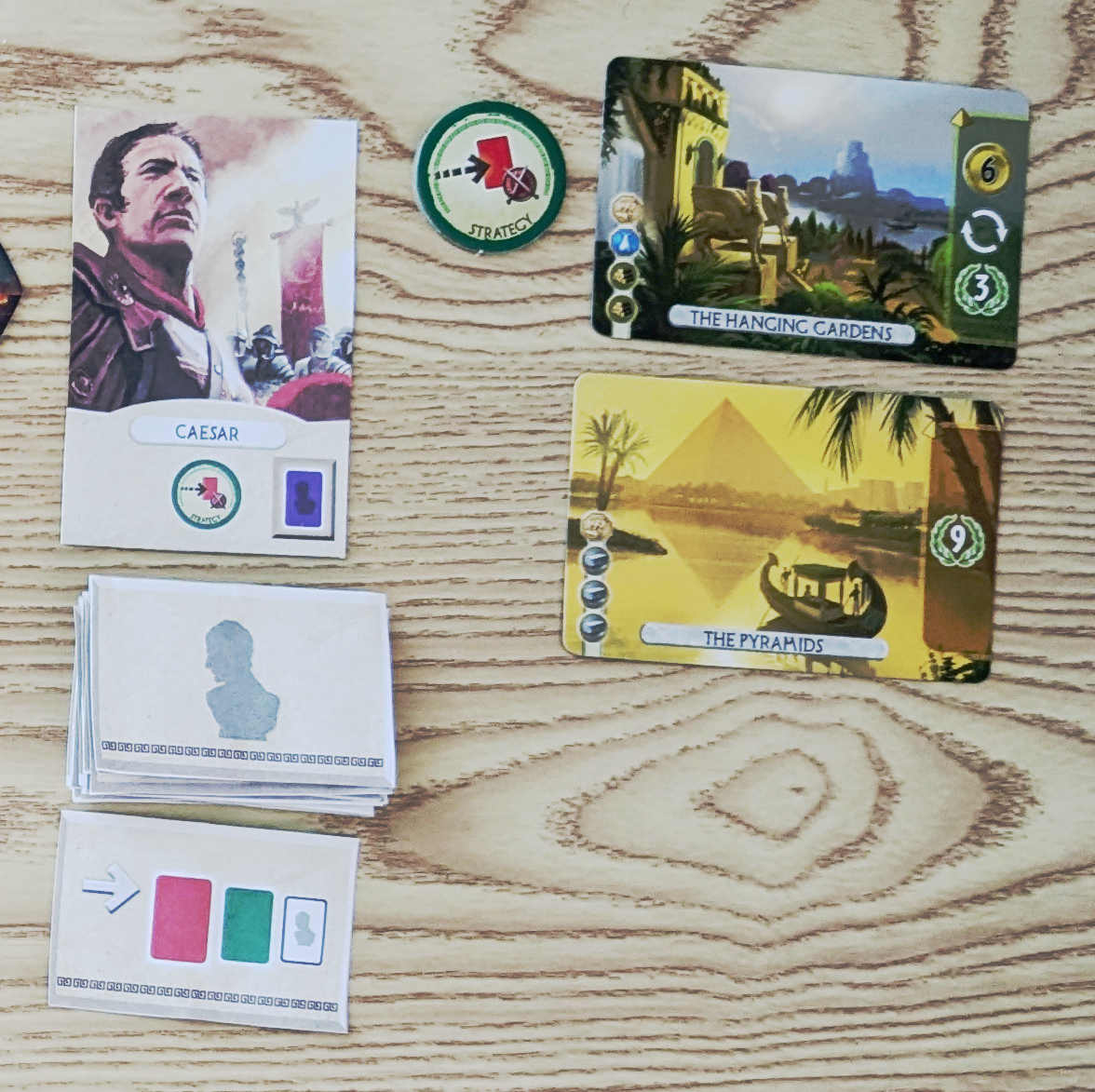
Gameplay #
One of the reasons I adore 7 Wonders Duel is how easy it is to teach and play. Even though there’s a lot of strategic depth, the core mechanics are straightforward and accessible without sacrificing complexity.
The drafting mechanic, in particular, is executed beautifully. Traditional two-player drafting games often fall flat, with each player quickly seeing all available cards and then mechanically picking through them. 7 Wonders Duel turns this on its head with the card pyramid. By partially revealing the cards, you can only draft from the exposed ones that don’t have any other overlapping cards. The tighter drafting pool creates a lot of tension. Do you take a less-than-ideal card now to deny your opponent something better later? Or do you risk uncovering a card that could drastically swing the game in their favor? This constant back-and-forth is a hallmark of the game, and it keeps you engaged from start to finish.
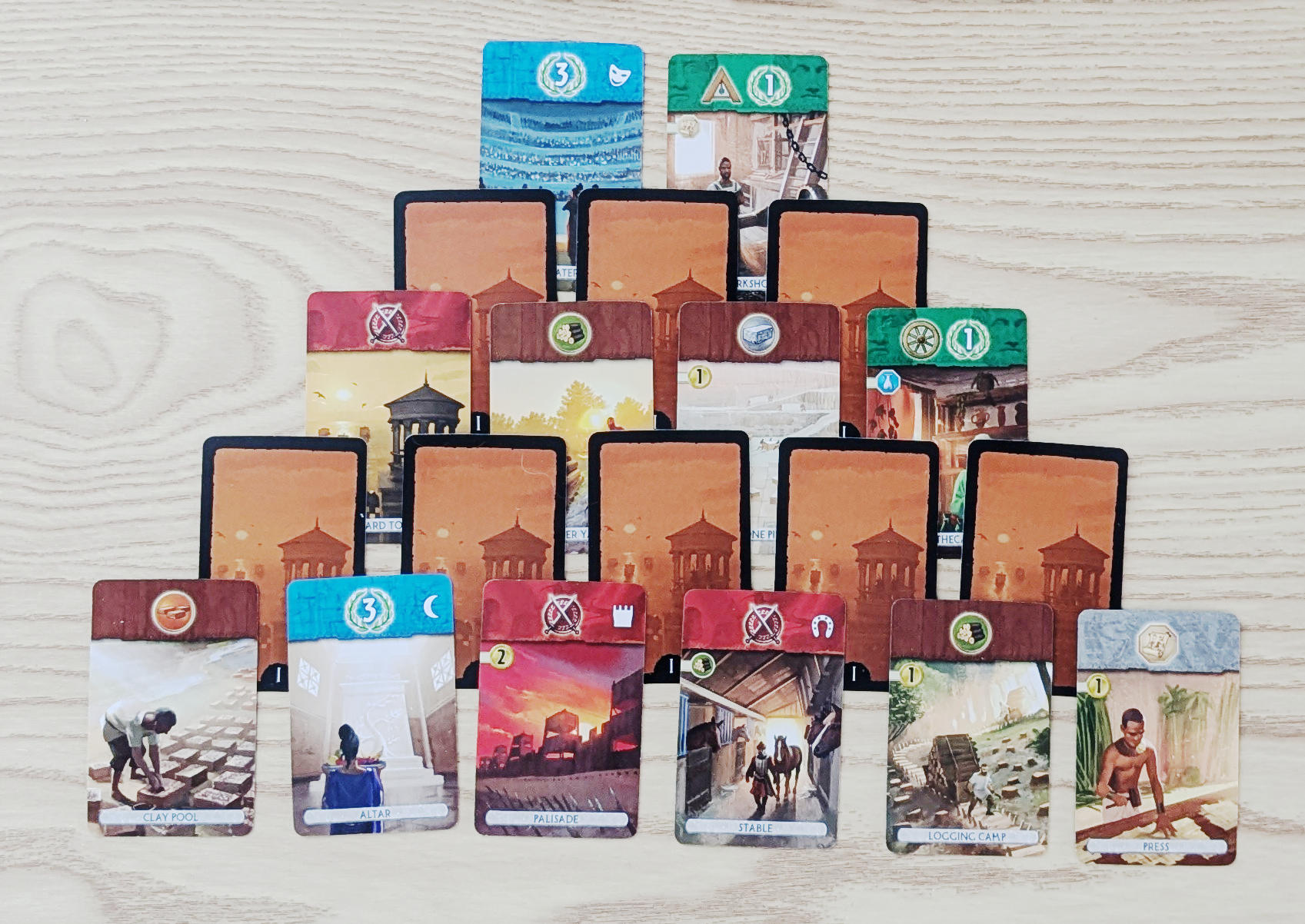
The multiple victory conditions also add layers of strategy. While points often decide the game, you can’t ignore the looming threat of a military or scientific victory. The tug-of-war on the military track is exhilarating, with each player trying to push closer to their opponent’s capital while defending their own. Science, though more subtle, has the same nail-biting effect as players race to collect enough symbols for an instant win.
Now, the solo mode… I’ve got to give it credit. The Decision cards for the AI are intuitive and quick to resolve, so there’s very little downtime or mental overhead when managing your opponent’s turns. The Leaders each offer slight gameplay twists, though I didn’t find their difficulty to vary much–if at all. I would have appreciated a bit more variance or guidance on which Leaders are more challenging. The Leaders are not ordered by difficulty nor is there a way to modify the difficulty of each Leader. It just feels like something is missing. That said, I personally found the Leaders to be a good challenge and part of the strategy is learning how each Leader likes to play and countering them accordingly as you would a human opponent. If you find the Leaders too easy, you may need to look at house-ruling to make them more challenging.
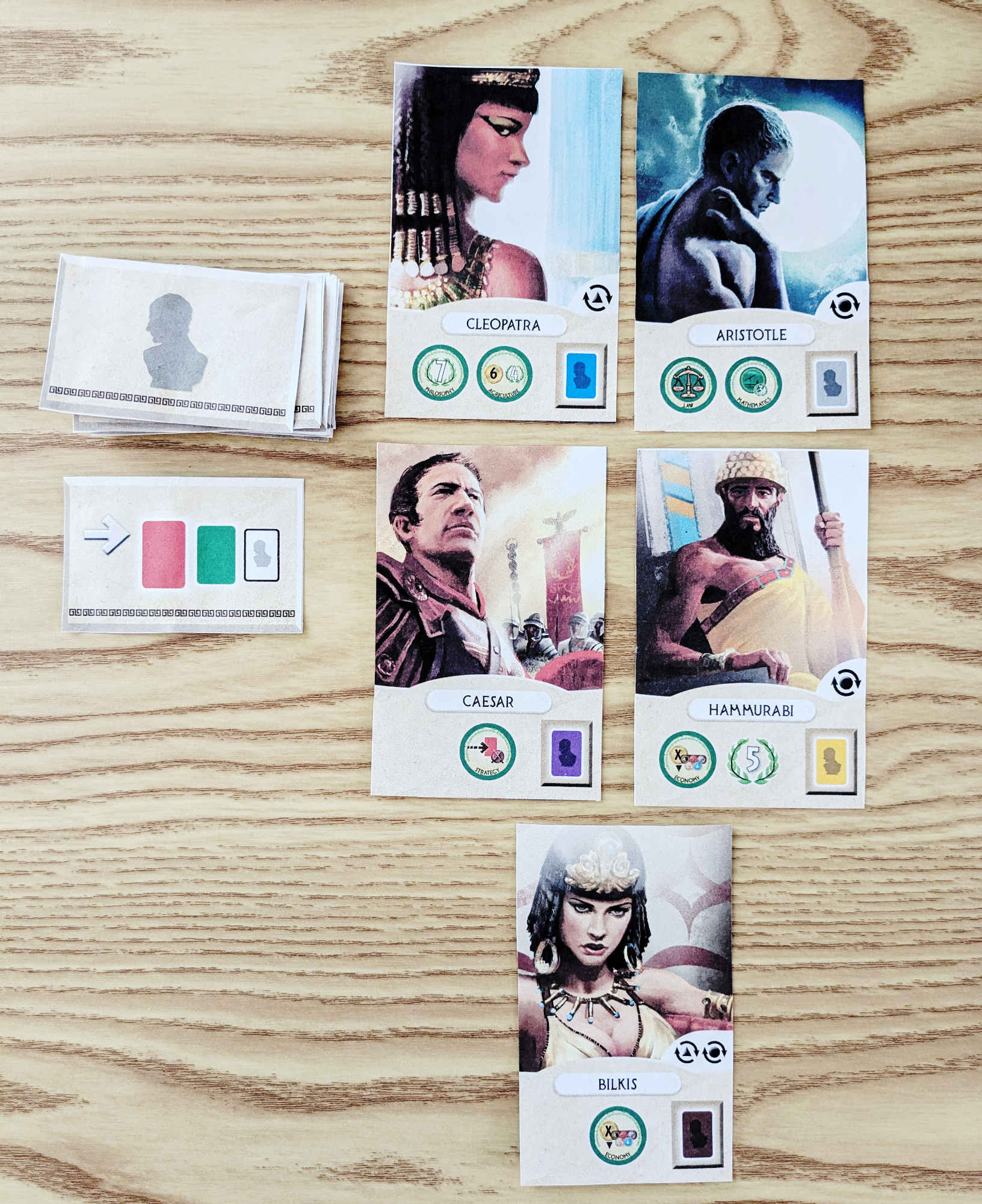
Components and Design #
7 Wonders Duel is a treat in terms of production quality. The tokens, military board, and that military miniature all look great and feel sturdy. The card pyramids also have fantastic table presence, and the art on each card helps to immerse you in the civilization-building theme. It’s not just mechanics. There’s a sense of story in watching your empire grow from a humble city-state into a sprawling civilization.
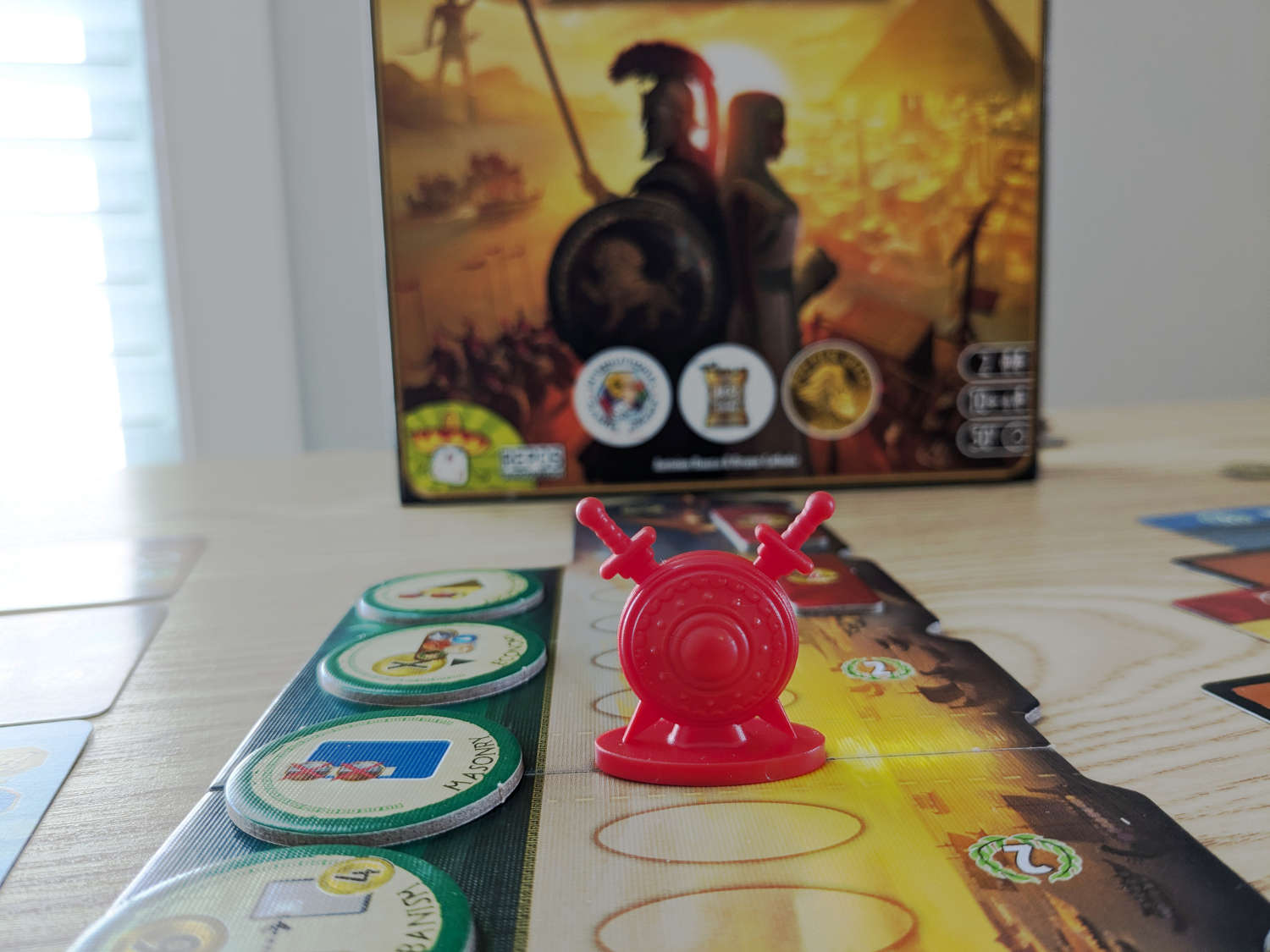
The solo print-and-play components are similarly well done. The Leader cards fit seamlessly into the base game, and the Decision cards look just as polished. My only gripe is with the extra-turn symbols. There are two different extra-turn symbols and they look way too similar. This to some confusion or double-takes in the middle of a game.
Final Thoughts #
I’m always thrilled when designers and publishers go back and add solo modes to existing games, and 7 Wonders Duel is no exception. The solo variant delivers the full experience, letting me dive into my favorite two-player game even when I’m flying solo. While the AI could benefit from a bit more difficulty scaling, the core experience is intact, and it scratches that civilization-building itch every time.
If you’re a fan of 7 Wonders Duel or just love quick, strategic solo games, I can’t recommend this enough. Give it a try, and let me know which Leader gave you the most trouble!
We purchased this product independently. All opinions expressed are independent, honest, and unbiased.
- Plays just like the 2-player version, but solo.
- Easy to manage AI with minimal overhead.
- Lack of explanation and control over Leader (AI) difficulty.
Learn more about how we rate board games...
